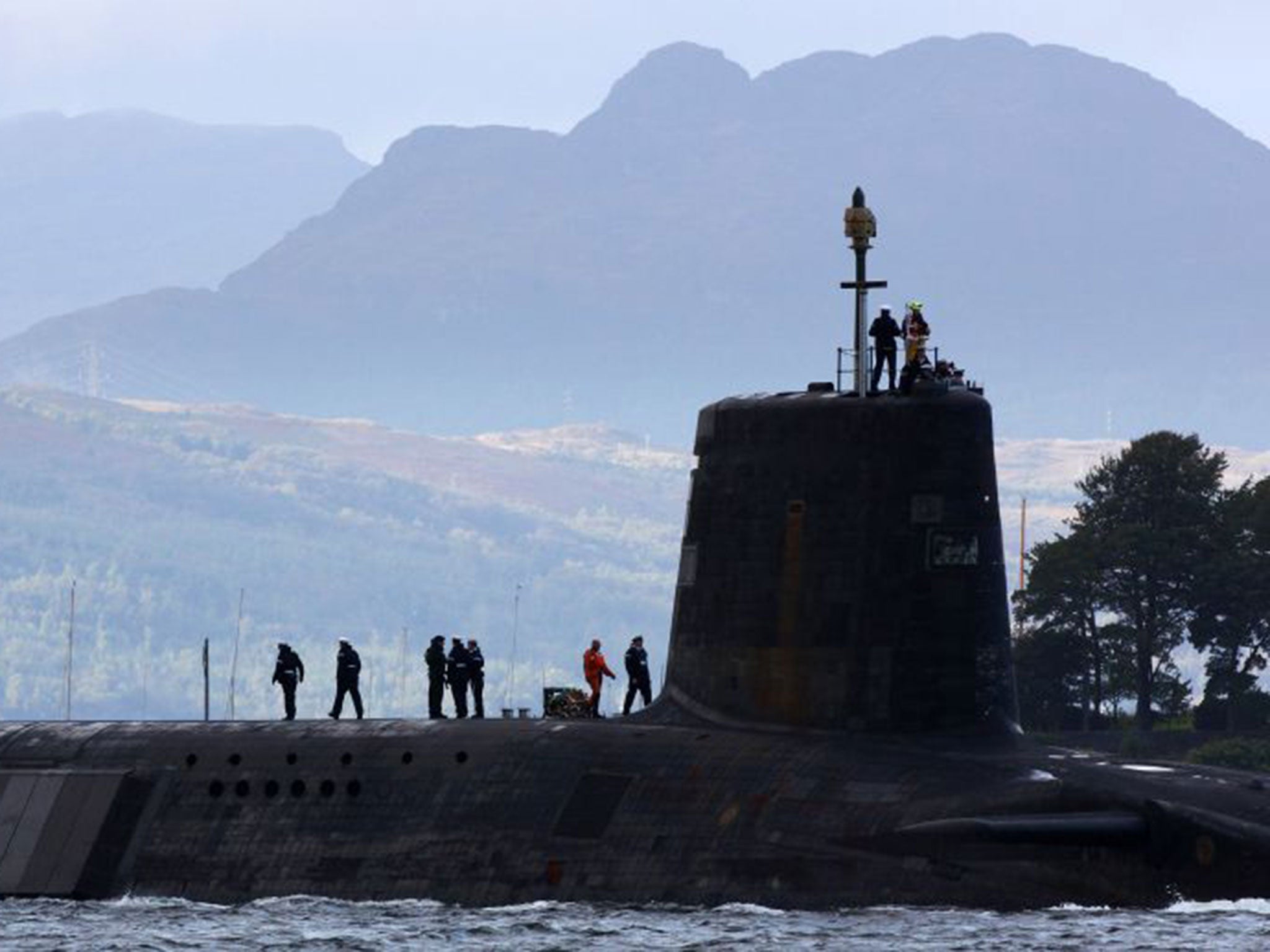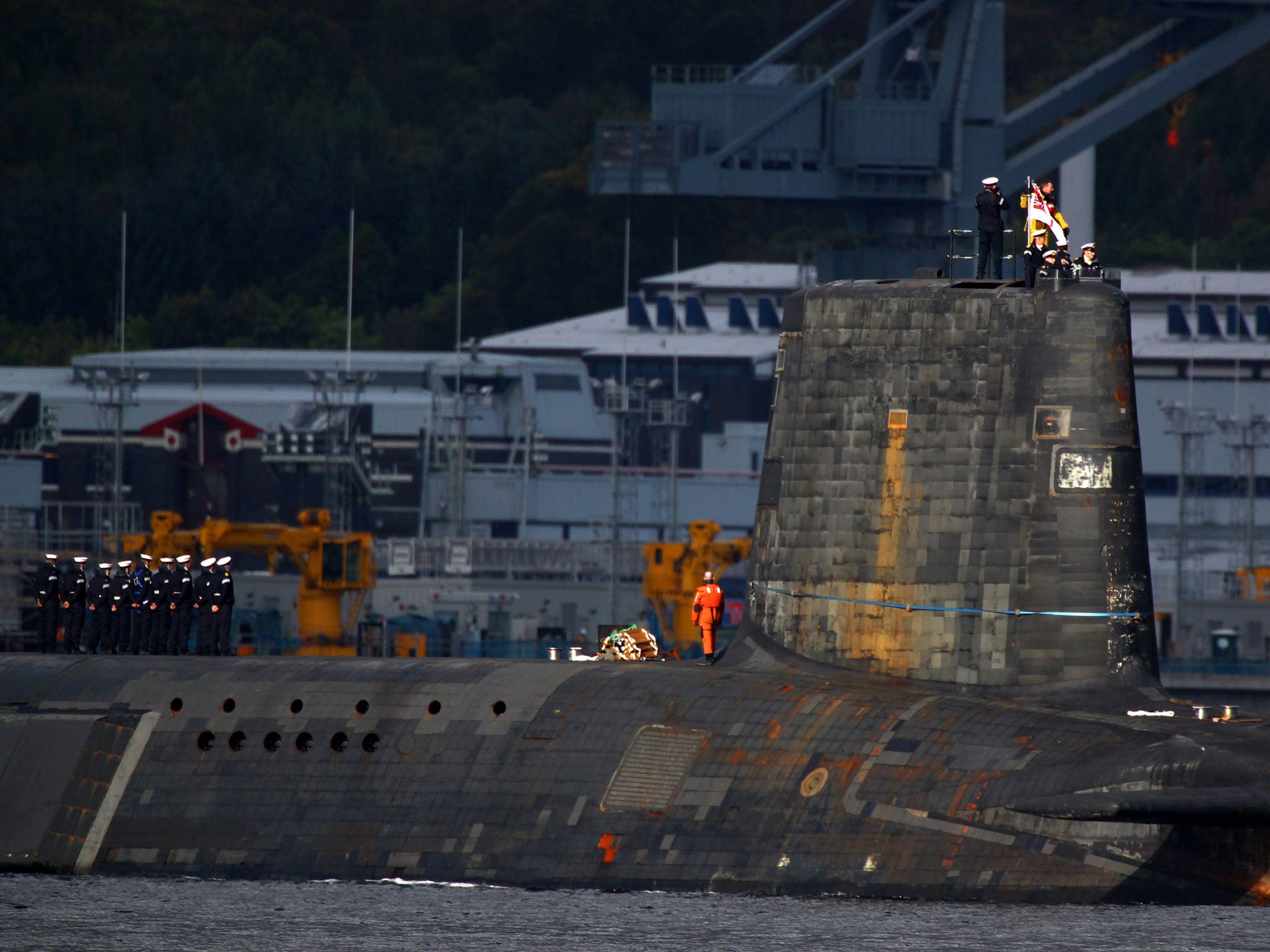Your support helps us to tell the story
From reproductive rights to climate change to Big Tech, The Independent is on the ground when the story is developing. Whether it's investigating the financials of Elon Musk's pro-Trump PAC or producing our latest documentary, 'The A Word', which shines a light on the American women fighting for reproductive rights, we know how important it is to parse out the facts from the messaging.
At such a critical moment in US history, we need reporters on the ground. Your donation allows us to keep sending journalists to speak to both sides of the story.
The Independent is trusted by Americans across the entire political spectrum. And unlike many other quality news outlets, we choose not to lock Americans out of our reporting and analysis with paywalls. We believe quality journalism should be available to everyone, paid for by those who can afford it.
Your support makes all the difference.Britain’s nuclear weapons base has suffered from a dozen serious nuclear safety failures in recent years, according to official records.
Over the last six years HM Naval Base Clyde, where Britain’s Trident nuclear submarine fleet is based, suffered from nearly 400 “widespread” nuclear safety events relating to a “poor safety culture”.
In 12 of these cases the problems involved an “actual or high” risk of unplanned exposure to radiation or contained release of radiation within a building or submarine, according to information released by ministers in the last week.
Last year the number of nuclear safety events involving nuclear propulsion nearly doubled, from 57 in 2013 to 99 in 2014.
In one incident in 2012, contractors working on the base were exposed to radiation while repairing submarine equipment.
The 12 most serious events at the base, classified by the Ministry of Defence as “Category B”, are ones in which there is an “actual or high potential for a contained release [of radiation] within building or submarine or unplanned exposure to radiation”.
According to the Ministry’s own criteria, this classification is used for safety events that involve a “major failure in administrative controls or regulatory compliance”.

Other serious nuclear safety events included the unsafe operation of a crane on a jetty handling explosives, faulty radiation testing, and low-level radioactive contamination around a pipe that dumps supposedly decontaminated waste into the sea.
Despite the problems, the base has not recently suffered from any of the most serious category of safety failures – ‘Category A’ – which would have involved release into the environment in the surrounding area.
The information was disclosed by ministers after a parliamentary question by SNP MP Angus Robertson – who leads the party’s parliamentary group in Westminster.
He said the base’s safety record was “totally unacceptable” and that safety had to be paramount when nuclear reactors were concerned.
“It’s important to note this doubling has occurred before expansion work at the base for more nuclear submarines is complete. Wherever nuclear weapons or reactors are concerned – safety must be paramount. We need to know exactly what is being done to address these breaches and tighten procedures,” he said.
“These figures indicate how widespread nuclear safety breaches are. We must have an absolute assurance from the MoD that safety concerns are given then highest priority.
Mr Robertson hit out at the Government’s plan to renew the Trident weapons system, describing its nuclear bombs as “obscene weapons of mass destruction”.
A Ministry of Defence spokesperson told the Independent: “We can be clear that none of the events in the reports posed any risk to the health of our personnel, or to any members of the public.
“Our rigorous reporting system shows how seriously Defence takes all aspects of nuclear safety and where necessary, measures are put in place to prevent a recurrence.”

Join our commenting forum
Join thought-provoking conversations, follow other Independent readers and see their replies
Comments